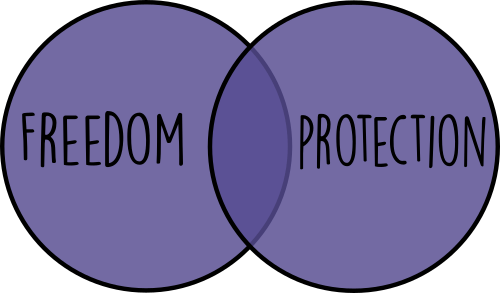|
*All stories in this post have had details changed to protect confidentiality Dear Parents of Children with Trauma, I see you, with your reddened eyes, shaking with effort to keep the tears from spilling out, your shoulders hunched under the weight of the responsibility for the child you promised to keep safe for always. I hear your questions around “finding solutions and moving forward” and watch as you try to push away those other, deeper, scarier questions around “why did this happen?” that threaten you with guilt and confusion so big you can barely breathe. I’m so sorry to you that on top of having to face the fact that your child has been through something stressful or traumatic, you now have to wrestle with self-blame and an affront to your sense of safety in the world. And moreover, I’m sorry that society so often sends conflicting messages about your role in what happened to your child. Questions from friends and family like, “Why did you let it get that bad with their dad?” or “Weren’t you keeping an eye on your son while he was swimming?”—all of these may seem to confirm your worst fears that you didn’t protect your child and you’re not an adequate parent. Let’s try to step back and see the forest from the trees a little.
Helicopter parents—those who try to hover over their kids and prevent all harm from befalling them—are widely criticized for limiting their child’s problem-solving capacities. But, at the same time, the first person we all blame when a child is hurt or misbehaves is the parent. The parent is in a catch-22 here where they’re not supposed to overprotect, but they’re 100% responsible when something bad happens... That’s no fair! The truth is, as children get older and gain motor, social, and moral thinking skills, it’s healthy and appropriate for them to gain more freedom from their parents. Parents should strive to support their children in becoming more independent, which means giving them time and space to explore. The tough part is that with that time and space comes the possibility that something scary, stressful, or damaging happening to a child. So, what is a parent supposed to do? Glue their child to their hip so they can be there to ward off any danger? That’s just not realistic, unless you’re Molly Weasley and can bewitch your dishes to do themselves. I have sat across from many parents who have wept with guilt over the things they think they should have done to prevent their child from stress and trauma. I’ve heard it all, from “I had a feeling this would happen,” to “I shouldn’t have taken him there that day,” all the way to plain old, “This is all my fault” and “I’m a terrible parent!” No, no, no, no! You couldn’t see the future, you didn’t know that this was going to happen—maybe you had a “feeling” but did that feeling tell you loudly and clearly what was about to go down? Of course not; If harm were certain, you’d do everything to prevent it, and even then you might have fallen short. We are all doing the absolute best we can. For parents, it’s trying to strike the right balance between giving a child autonomy and supervision, freedom and protection, privacy and togetherness. You are only one person making the best choices you can as life unfolds. You may have the reality of work or other children to take care of that demand attention and often, ignoring those other demands on your attention would be far more catastrophic than trying to foresee and prevent all possible dangers. I had a parent once whose young child drowned after falling in a wave pool at a water park. She blamed herself because she had removed the child’s arm-band flotation devices. When I asked her why they had been removed, she explained that the child hadn’t eaten all day, but cried when the floaties got in the way of her being able to get food into her mouth. Maybe some of you will say, “Well if a child is even close to a pool, they need their floaties on!” Put yourself in that position and honestly tell me that when you have a handful of children to manage, and one needs sunscreen, one needs supervision, and one needs to eat, you are not going to make smart choices to minimize meltdowns and risk across the board. Like I said, we are all doing the best we can, making the best decisions with the information we have and the situation as we perceive it. Also, please remember that just because you’re a parent doesn’t mean you can resist the charm and manipulation of a talented sociopath who is looking to abuse a child. Think of the parents of the young female gymnasts who were sexually abused by Larry Nassar, a USA Gymnastics doctor who was supposed to be helping them with their sports injuries—these parents were sometimes even in the room when the abuse took place. When a person wants to get away with hurting a child, they find ways to trick both the child and the parents. You’re not immune to this. I want to encourage you to have compassion for yourself. If really and truly, you think you did something that contributed to the trauma occurring, ask yourself why you did that thing. Drill down deep—could you have actually made a different choice with the information you had at the time? If so, work on forgiving yourself and learning so that you can make a different choice next time. But if not, which I think is the reality the vast majority of the time, it’s time to accept the difficult reality that, unfortunately, you are not all-powerful and you do not control the world 😉. No, but seriously: this can be really, really difficult because parents want to believe that by being vigilant enough, smart enough, careful enough, whatever-enough, they can prevent bad things from happening. Sadly, there are limits on your ability to protect your child, and they must walk through this world without your eyes on them all the time. If you’re struggling with self-blame or confusion, focus on your real job as a parent: loving, teaching and guiding. What a wonderful gift you’ll give your child by modeling acceptance, compassion and self-forgiveness. Love, Jordan
1 Comment
Deidre
5/30/2023 03:57:50 am
Do you have a post on how to help kids with PTSD? My niece is at a long term facility because she has been struggling really bad. She feels the whole world is against her. Her dad did some stuff if you can assume from there when she was so little 😭 none of us knew until about a year or two ago and since finding out things have spiraled out of control. There have been times she runs away, gets into fights (with both peers and parents; some times verbal sometimes physical), she had tried overdosing before she was placed and talked about doing it again and it hurts so bad to watch because I know she is hurting so bad herself. Everything I find doesn't really help though in the events where she is screaming and having issues with coping and it sucks because I just want to help. Her mom has done everything to help. The system for mental health especially for the youth is broken. Ugh. Any information will help 😩 thanks
Reply
Leave a Reply. |
AuthorHi friends! I'm Jordan Motta, a licensed therapist in CO and FL-- lover of both snowfall and ocean waves. A work-in-progress, constantly in search of a life of peace, a girl sailor with a pocket yacht, I love helping people find more options about how they want to live their lives. Follow me on Instagram @jordanmottaLMFT. Archives
April 2019
Categories |


 RSS Feed
RSS Feed
